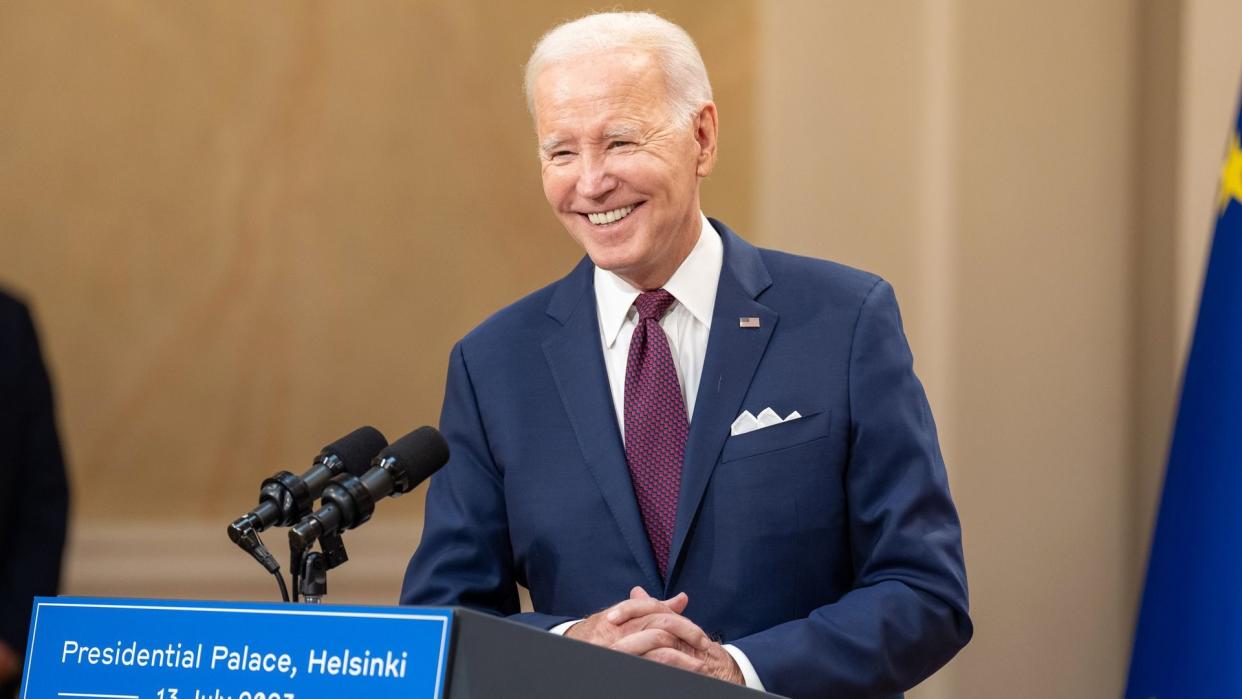Biden’s Downpayment Toward Equity Act: Could You Get $25,000 for Your First Home?

Although more Americans own homes than rent, the numbers gap between the two categories is shrinking as housing costs continue to climb, pricing out prospective homeowners.
See: More Americans Can Afford To Buy a Home in These 20 Cities
Find: 2023’s Housing Correction Could Be The Largest Since Post-WWII
More economically disadvantaged renters may get the chance to own a home in the future — if a down payment assistance bill developed from a Joe Biden campaign promise passes into law.
The Downpayment Toward Equity Act, or the First-Time Buyer Home Grant, promises to administer $100 billion in direct assistance to first-time, first-generation homebuyers when purchasing their home, provided the bill becomes law.
What Is the Downpayment Toward Equity Act?
The Downpayment Toward Equity Act aims to establish “a grant program through the Department of Housing and Urban Development for states and other entities to provide qualifying assistance to certain first-time, first-generation home buyers in purchasing their first homes,” per the bill summary.
By granting first-generation homebuyers better opportunities to purchase a home, the ultimate purpose of the program is to address multigenerational inequities access to homeownership in the United States and to reduce the racial homeownership gap that exists in the country.
Up to $25,000 in funding is given at closing, rather than offered as a tax relief credit, and can be used to assist eligible home buyers with:
Mortgage down payments.
Mortgage closing costs.
Reducing mortgage interest rates (loan discount points).
Subsidies for shared equity homes.
Certain preoccupancy corrections to a home to accommodate persons with disabilities.
A first-time homebuyer is defined as someone who hasn’t owned a home in the prior three years, while a first-generation buyer is eligible for this grant program if their parents or guardians have never bought a home in the United States (this requirement is waived for former foster care children).
Also: 15 Cities Where Houses Are the Best Bargains Right Now
To qualify for the $25,000 grant, the homebuyer has to have a household income of less than 120% of the area median income. In the case of a homebuyer acquiring an eligible home that is in a high-cost area, buyers can qualify if they earn up to 180% of the median income in the area, as determined by the Secretary of Housing and Urban Development.
To remain qualified for the assistance program, the homebuyer has to live in the house purchased for five years or risk paying back a portion of the grant. Homebuyers have to complete a government-approved homeownership education course and grant money can’t be used for a second home or a rental property, per The Mortgage Reports.
What Is the Status of the Bill?
Originally introduced in Congress on July 16, 2021, by Rep. Maxine Waters (D-Calif.) and currently cosponsored by 65 Democrat representatives, the bill has been affirmed by President Joe Biden’s 2024 Fiscal Year budget proposal and re-introduced to the House as H.R.4231 on June 21, 2023. During the initial push for the bill in 2021, a companion bill was also presented to the Senate by Sen. Raphael Warnock (D-Ga.).
The 2023 iteration of the bill still needs to be debated and voted on in the House, then delivered to the Senate for processing. While The Mortgage Reports stated that industry experts foresee the legislation to be approved “in some capacity” this year, pushing legislation through Congress remains fraught.
More From GOBankingRates
5 Cities Becoming Popular With Baby Boomers: Are They Right for Your Retirement Years?
The 4 Types of Bank Accounts All Small Businesses Should Have
This article originally appeared on GOBankingRates.com: Biden’s Downpayment Toward Equity Act: Could You Get $25,000 for Your First Home?
